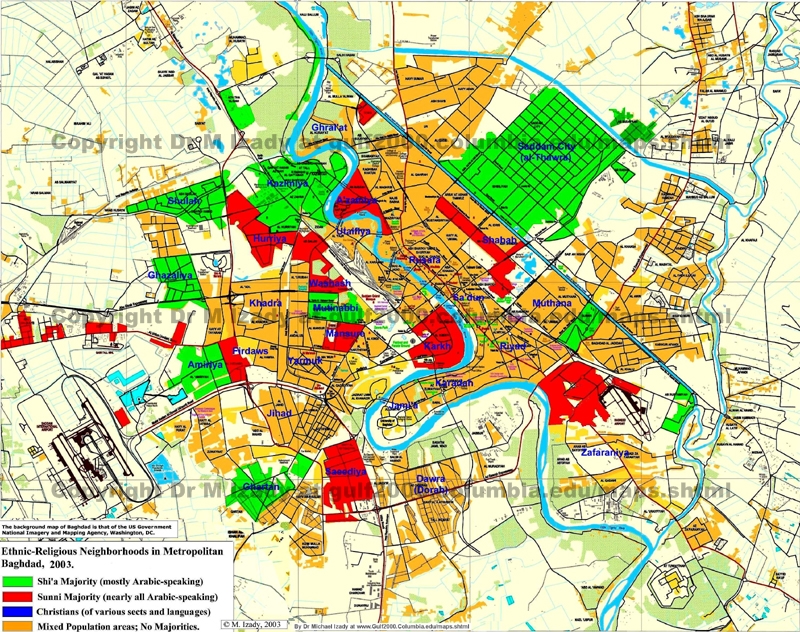 REUTERS/Bruno DomingosForeign conventional military forces cannot provide a self-sustaining economic, educational, medical, or political solution to another nation's insurgency.
REUTERS/Bruno DomingosForeign conventional military forces cannot provide a self-sustaining economic, educational, medical, or political solution to another nation's insurgency. At most, foreign militaries can temporarily assist in security and provide a logistics chain for other efforts. The idea that a political problem can be completely solved with a military solution is false unless the intent is to create a military dictatorship.
Cultural AspectsMost cultures with ongoing insurgencies involving the U.S. hold great respect for elders, yet the first face these influential locals meet are a young non-native speaking member of the military. The universal nature of warrior cultures will go only so far in assisting relations.
Granted an all-volunteer military affords the opportunity for the best and brightest to end up on the front lines, but this is personality dependent not institutionalized. Does the U.S. military have its most qualified COIN troops leading operations in Afghanistan today? The answer is reflective of the national priority for achieving success.
Origins of Oil SpotAnother danger with military-centric approaches to COIN is the repetition of failed or inapplicable strategy; specifically the oil spot or ink blot.
Bernard Fall best sums up the origins of this
strategy.
Some people have spoken of what is called the "oil-slick principle," which has been described as the holding of one particular area, one central area, and working one's way out of the center. That was fine when the French developed the concept for the Sahara, because in the Sahara there are obligatory watering points. If they have all the oases, those outside have to come in and get water. But Viet-Nam doesn't happen to be the Sahara or an oasis. Thus, the oil-slick method succeeds mostly in pushing the Viet Cong units into the next province. Of course, it looks good, at least, because for one week there will be a "cleared" province. For the time being this is considered adequate until something more imaginative is discovered.
In a chaotic environment we have what are called
attractors. Think of dropping a bag of marbles on your kitchen floor. It would be nearly impossible to accurately predict how each marble would bounce, roll, and settle. But drop a bag of marbles into a large funnel and you could accurately predict where they would end up. Identifying these cultural attractors is critical to formulating a successful COIN strategy. In other words where are the most people, specifically insurgents funneled? The answer contrary to U.S. strategy is not always a city as demonstrated by Fall's oasis example. Sometimes it is a location, an event or time frame.
Dependable Host Nation PartnerCurrent U.S. COIN doctrine focuses on providing security for the population in order to join the people with their government. But what if the government is an enemy of the population it governs? Or worse, what if the government does not exist in an area? A recent
RAND commentary from earlier this summer discusses this issue.
A key tenet of counterinsurgency doctrine is to empower the host government to fight the forces trying to topple it. But in Iraq the government itself was for years little more than a microcosm of the complex mix of conflicts in the country. Attempts to strengthen the government embroiled the United States in a nettlesome political balancing act. The Americans were frequently in the awkward position of picking winners and losers, and often manipulated by one faction to gain advantage over its rivals. The very state forces the United States helped to establish and train were implicated on numerous occasions in systematic sectarian violence.
As a third-party military conducting COIN operations, U.S. forces will be manipulated, used, and befriended by opportunists. This is not always a bad thing, but it will reshuffle the local power.
In this situation the counterinsurgents are the revolutionaries seeking to change the status quo. Absent a reliable partner and political indoctrination of local partners, any achievements by the counterinsurgents will be temporary. Upon exiting the nation, they will leave with their money, influence, logistics, and protection for local collaborators.
Counterinsurgents as RevolutionariesPolitical indoctrination is at the core of revolutions yet the U.S. military has not institutionalized this at the grassroots level. Although the military may not be the best suited to carry out such a mission, but they are capable of facilitating those trained in indoctrinating the masses. Insurgencies end with political solutions.
If the U.S. desires to leave behind a stable and democratic government in Iraq and Afghanistan, political indoctrination is required. The U.S. is asking people to give up their way of life, one that has barely changed for centuries. The ultimate goal then becomes convincing an ancient people into desiring a modern society. Without indoctrinating a population into a culturally acceptable means of adopting such a quantum leap of lifestyle, mission failure can be delayed but ultimately inevitable.
David Kilcullen speaks to this
specific point:
Politically, in many cases today, the counterinsurgent represents revolutionary change, while the insurgent fights to preserve the status quo of ungoverned spaces, or to repel an occupier — a political relationship opposite to that envisaged in classical counterinsurgency. Pakistan’s campaign in Waziristan since 2003 exemplifies this. The enemy includes al-Qa’ida (AQ) linked extremists and Taliban, but also local tribesmen fighting to preserve their traditional culture against 21st century encroachment. The problem of weaning these fighters away from extremist sponsors, while simultaneously supporting modernization, does somewhat resemble pacification in traditional counterinsurgency. But it also echoes colonial campaigns, and includes entirely new elements arising from the effects of globalization.
Demands for modernization without values, politics, ethics, morals, or any sort of culturally translatable narrative gives the insurgents the propaganda opportunity necessary for them to leverage nationalist sentiments.
This brings into question the larger debate; is modernization and nation-building necessary to counter an insurgency?
 (AP Photo/ al-Lafeta)
(AP Photo/ al-Lafeta)


























